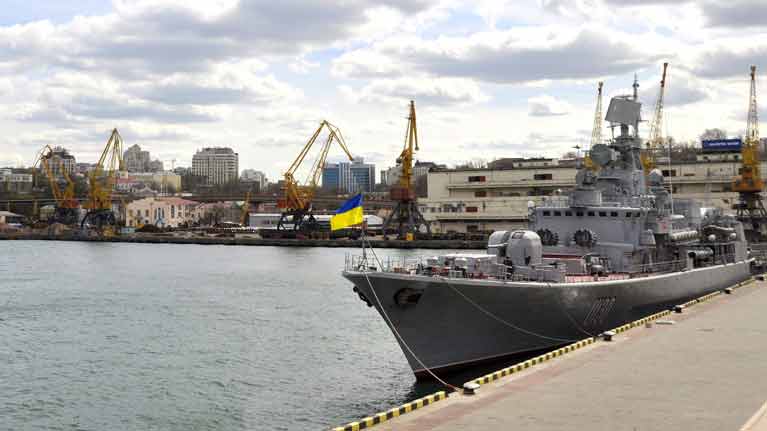Global supply chains
How to promote decent work and workers’ rights in export processing zones
This week, ILO headquarters in Geneva is hosting a meeting of experts to promote decent work and protection of fundamental principles and rights at work for workers in export processing zones (EPZs). ILO News spoke with Vic van Vuuren, Director of the ILO Enterprises Department to find out more about the event and EPZs.

The reply to this apparently simple question is not an easy one, as international institutions use different definitions. At the ILO, we define export processing zones (EPZs) as “industrial zones with special incentives set up to attract foreign investors, in which imported materials undergo some degree of processing before being exported again.”
Discussions over EPZs have been impeded by the very fact that they have been defined in various ways. However, the background report to our meeting refers to one common characteristic in all these definitions: an enclave – in terms both of its geography and its exceptional regulatory and institutional features – which may still interact with the economy outside the special zone.
It is also very difficult to estimate the number of EPZs. The most recent ILO global count, in 2006, was 3,500 EPZs (or similar zones falling under some 20 different types and names). However, this figure excluded more than 5,000 single-factory EPZs in Bangladesh. No comprehensive survey on the phenomenon of EPZs and similar entities is available after 2007.
ILO News: What are the main characteristics of EPZs?
They are enclaves created by governments to promote foreign direct investment and exports. Inputs and exports from these zones are often exempt from tariffs so as to allow producers to access inputs at global prices to enhance their competitiveness in global markets. Sometimes, regulations can be modified, including labour regulations and administration.
EPZs have become increasingly common among countries seeking export-led economic growth, even though some have produced mixed results when it comes to economic and social development. The most current incentives are fiscal exemptions such as business tax reductions, duty-free imports of raw materials and a more effective and efficient administration regime etc.
Sometimes, EPZs can also be used by governments to address development issues by creating them in disadvantaged regions or cities to reduce unemployment. So, it is fair to say that EPZs create employment for workers, whose earnings can further stimulate economic development.
ILO News: However, there has been criticism that EPZs are also being used to bypass workers’ rights. Is this true?
The tendency for some governments to attract investors in EPZs by weakening protection of workers’ rights has been observed, as well as exemptions or derogations from national labour laws. The rights that are most commonly removed are freedom of association and collective bargaining, protection from discrimination in hiring and unjustified dismissal.
In 2016, the International Labour Conference discussed decent work in global supply chains. It adopted conclusions highlighting the fact that “decent work deficits were pronounced in a number of EPZs linked to global supply chains”.
As a follow-up, the ILO Governing Body requested the Office to organize a tripartite Meeting of Experts bringing together governments, employers and workers from around the globe. They will try to identify possible action to promote decent work and fundamental principles and rights at work for workers in EPZs, while at the same time identifying good practices and building on them.
ILO News: How can we tackle decent work deficits in EPZs?
Convincing governments and companies is one key factor. After all, it is reasonable to expect EPZ enterprises to have a positive impact on decent work. In countries where violations of workers’ rights are common – in both, EPZs and the surrounding domestic economy, the discrete nature of EPZs which makes them attractive incubators for greater market reform also makes them a logical first step to reform labour law and justice.
The report prepared for the Meeting of Experts also mentions several examples of action already taken in some countries to promote fundamental rights at work in EPZs. For example, in Nicaragua, in response to complaints concerning freedom of association and collective bargaining in EPZs, the Government established a Tripartite Labour Committee for EPZs which facilitates collective bargaining. A total of 20 collective agreements, covering some 50,000 workers have been signed at the national level in Nicaraguan EPZs.
Another example of boosting social dialogue in EPZs comes from the West African country of Togo where genuine collective bargaining now takes place between trade unions and employers’ organizations in Togolese EPZs.
Participants to the Meeting of Experts will discuss challenges and opportunities in promoting decent work in EPZs and are expected to provide more guidance on what additional action should be taken by Governments, employers’ and workers’ organizations to further promote the ILO’s social agenda in EPZs. They will also discuss how the ILO and the multilateral system can support such efforts.